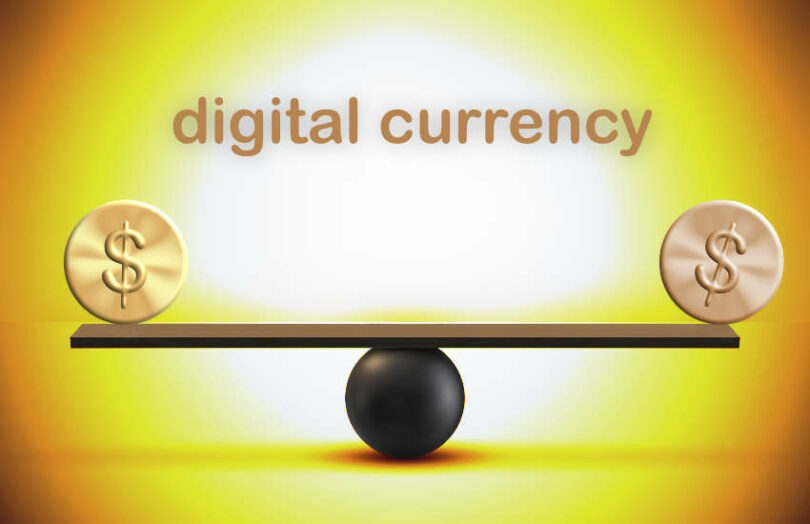The digital revolution has fundamentally reshaped numerous industries, and the financial sector is no exception. As the world increasingly moves towards digitalization, traditional financial systems face unprecedented challenges and opportunities. At the heart of this transformation lies digital ledger currency, a technology that promises to redefine how financial transactions are conducted and managed. This article explores the potential of digital ledger currencies and their role in the future of decentralized financial transactions.
The Benefits of Digital Ledger Currency
Enhanced Security and Transparency
One of the primary advantages of digital ledger currency is its enhanced security and transparency. Since all transactions are recorded on a decentralized ledger, they are visible to all network participants. This transparency helps prevent fraudulent activities and ensures that all transactions are conducted fairly and openly. Additionally, the use of cryptographic techniques ensures that the data on the ledger is secure and cannot be altered without the consensus of the network.
Reduced Transaction Costs
Traditional financial transactions often involve multiple intermediaries, each of which charges a fee for their services. Digital ledger currency eliminates the need for these intermediaries, significantly reducing transaction costs. This cost reduction is particularly beneficial for cross-border transactions, where traditional methods can be slow and expensive due to currency conversions and regulatory requirements. You can also explore Immediate Apex AI for further information.
Faster Transaction Times
In traditional banking systems, transactions can take days to settle, especially when involving international transfers. Digital ledger currency enables near-instantaneous transactions, regardless of geographic location. This speed is achieved through the decentralized nature of the ledger, where transactions are verified and recorded in real-time by network participants.
The Future of Decentralized Financial Transactions
Moving Towards a Decentralized Financial Ecosystem
The adoption of digital ledger currencies is paving the way for a decentralized financial ecosystem, where financial services are no longer controlled by centralized entities. This shift has the potential to democratize access to financial services, particularly for individuals in underserved or unbanked regions. By leveraging digital ledger currency, these individuals can access a range of financial services, from payments to loans, without the need for a traditional bank account.
Smart Contracts and Automated Transactions
Another significant development in the realm of decentralized financial transactions is the use of smart contracts. Smart contracts are self-executing contracts with the terms of the agreement directly written into code. They run on decentralized ledgers and automatically execute transactions when predetermined conditions are met. This automation reduces the need for intermediaries and minimizes the risk of human error or manipulation, leading to more efficient and reliable financial transactions.
The Rise of Decentralized Finance (DeFi)
Decentralized Finance, or DeFi, represents a growing trend in the financial sector where traditional financial instruments are being replicated on decentralized networks. Through DeFi platforms, users can lend, borrow, trade, and earn interest on digital ledger currencies without the need for a traditional financial institution. This innovation is driving a new era of financial inclusion, allowing anyone with an internet connection to participate in the global financial system.
Challenges and Considerations
Regulatory and Legal Challenges
While digital ledger currency and decentralized financial transactions offer numerous benefits, they also present significant regulatory and legal challenges. As these technologies operate outside the traditional financial system, governments and regulatory bodies worldwide are grappling with how to regulate them effectively. Issues such as anti-money laundering (AML) compliance, tax evasion, and consumer protection need to be addressed to ensure a safe and stable financial ecosystem.
Scalability and Energy Consumption
Another challenge facing digital ledger currencies is scalability. As the number of transactions on a decentralized ledger increases, the network can become congested, leading to slower transaction times and higher fees. Additionally, some digital ledger systems, particularly those that rely on energy-intensive consensus mechanisms, such as proof-of-work, have faced criticism for their environmental impact. Innovators in this space are working on developing more scalable and energy-efficient solutions, such as proof-of-stake, to address these concerns.
Security Threats
While digital ledger currency offers enhanced security compared to traditional systems, it is not immune to threats. Cyberattacks, such as hacking and phishing, pose significant risks to the security of digital assets. Furthermore, as the value of digital ledger currencies continues to rise, they become an increasingly attractive target for malicious actors. Continuous advancements in cybersecurity and network protocols are necessary to protect against these evolving threats.
Conclusion
Digital ledger currency represents a paradigm shift in the way financial transactions are conducted, offering enhanced security, reduced costs, and faster transaction times. As the world continues to embrace digitalization, the future of decentralized financial transactions looks promising. However, realizing this potential requires overcoming several challenges, including regulatory hurdles, scalability issues, and security threats. As technology evolves and more innovative solutions are developed, digital ledger currency will play an increasingly vital role in shaping the future of global finance.
